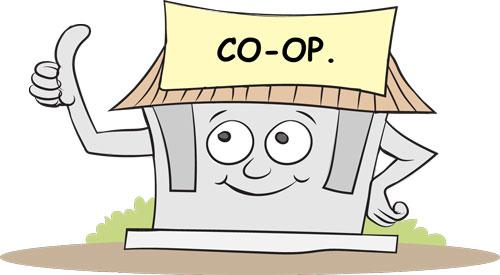Reply To:
Name - Reply Comment
In 1978, the JR Jayewardene government used or misused its 5/6 majority in parliament to swallow wholesale the globalised capitalist market economic system which most independent economic analysts believe is largely responsible for the crises Sri Lanka is facing today. The system enabled the rich countries and rich people to get richer while the poor or developing countries and their people became poorer. The system also led to the down grading or sidelining of Sri Lanka’s co-operative movement which had co-operative stores in almost every town and people were able to obtain essential items at affordable prices. Sri Lankans were given ration books with which they could buy rice and other essential items at reasonable prices. This ration book number was also needed to sign various documents including bank transactions. It was like the national identity card we use now.
 Today the United Nations marks the International Day of Co-operatives with the theme being “Rebuild better together.” In a statement the UN says that around the world co-operatives will showcase how they are meeting the COVID-19 pandemic crisis with solidarity and resilience and offering communities a people-centred and environmentally just recovery. In the fields of health, agriculture, production, retail, finance, housing, employment, education, social services and many other spheres where cooperatives are found, more than one billion cooperative members worldwide continue to prove that no one needs to face a crisis like the pandemic on their own.
Today the United Nations marks the International Day of Co-operatives with the theme being “Rebuild better together.” In a statement the UN says that around the world co-operatives will showcase how they are meeting the COVID-19 pandemic crisis with solidarity and resilience and offering communities a people-centred and environmentally just recovery. In the fields of health, agriculture, production, retail, finance, housing, employment, education, social services and many other spheres where cooperatives are found, more than one billion cooperative members worldwide continue to prove that no one needs to face a crisis like the pandemic on their own.
According to the UN the Day will be an occasion to spread the word about how a human-centred business model -- sustained by the cooperative values of self-help and solidarity and the ethical values of social responsibility and for community -- could reduce inequality, create shared prosperity and respond to the immediate impacts of COVID-19.
The International Co-operative Alliance says the movement’s earliest record comes from Fenwick in Scotland where in 1761, in a barely furnished cottage local weavers manhandled a sack of oatmeal into John Walker’s whitewashed front room and began selling the contents at a discount, forming the Fenwick Weavers’ Society. In 1844 a group of 28 artisans working in the cotton mills in the town of Rochdale, in the north of England established the first modern cooperative business, the Rochdale Equitable Pioneers Society, also known as the Rochdale Pioneers. They are regarded as the prototype of the modern cooperative society and founders of the cooperative movement.
According to the UN, Co-operatives have been acknowledged as associations and enterprises through which citizens can effectively improve their lives while contributing to the economic, social, cultural and political advancement of their community and nation. The co-operative movement has been also recognized as a distinct and major stakeholder in both national and international affairs.Co-operatives’ open membership model affords access to wealth creation and poverty elimination. This results from the co-operative principle of members’ economic participation: ‘Members contribute equitably to, and democratically control, the capital of their co-operative.’ Because co-operatives are people-centred, not capital-centred , they do not perpetuate, nor accelerate capital concentration and they distribute wealth in a fair way.
In Sri Lanka the co-operative movement’s could be traced back to 1904 when the Agriculture Credit Society was started in Menikhinna. Till 1978 the co-operative societies were closely linked up with the daily life of the majority of the people. They were actively engaged in a variety of activities related to economic, social and political significance. They were involved in distribution of consumer goods, supply of essential consumer services, supply of agricultural inputs, promotion and marketing activities in the fields of agriculture, fisheries and industry, and the mobilisation and allocation of savings in the rural areas with the mutual assistance of the Co-operative Rural Bank.
With the recent increase in fuel prices and the cost of living escalating to unprecedented levels the Government needs to take urgent and effective measures to revive the co-operative movement and co-operative stores in urban and rural areas so that people could buy essential items at affordable prices.